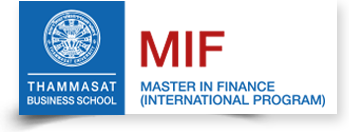The master in finance program is intended for seek to advancing their career in finance or move from a non-finance field. The MIF program at TBS is a path between two extremes, it is not a program that emphasizes general management skills, which would be better served by an MBA, nor is it too geared towards mathematical finance, which leaves the students with a narrow choice of career. MIF graduates have breadth of knowledge in finance from both corporate and investment perspectives and yet they understand the rigour of quantitative analysis that can help place them in a variety of finance jobs and be able to cope with increasing technical dynamics in financial markets from new innovations.
We do not require work experience, however, it is advisable that applicants have at least 1-2 years of experience. Most of our students are early stage of their career. The work experience in finance will help students formulate better research study questions which is required to complete the program. For those previously working in a non-finance field, the program organizes talks from industry professionals and alumni networking activities to learn more about careers in finance.
We provide pre-course for those without sufficient background in calculus or matrix algebra from their undergraduate studies. Those who have taken college level calculus or matrix algebra for more than five years are asked to re-take the maths pre-course.
Many of our students have undergraduate degree in pure sciences or engineering. For these students we ask them to take pre-courses in accounting, finance, and economics. Those who have taken college level accounting, finance, or economics for more than five years are asked to re-take the pre-course unless they receive special permission from faculty. For example, a student with valid CPA certification will be exempted from retaking pre-course accounting.
The exchange program allows students to take classes at partner universities and transfer credits back to their home school. Exchanges are bilateral and students pay tuition at home institution rates. For example MIF students going to Stockholm School of Economics pay TBS rate tuition for credits earned from SSE. Students are responsible for travel and living expenses overseas. For details see http://inter.tbs.tu.ac.th/index.php/center-for-international-affairs/
Usually students in their second year of MIF programs.
The type of visa you need is a “Non-Immigrant ED”, which allows you to stay in Thailand for 90 days. For more information, please visit Center for Internatinal Affairs website: http://inter.tbs.tu.ac.th/index.php/immigration/
